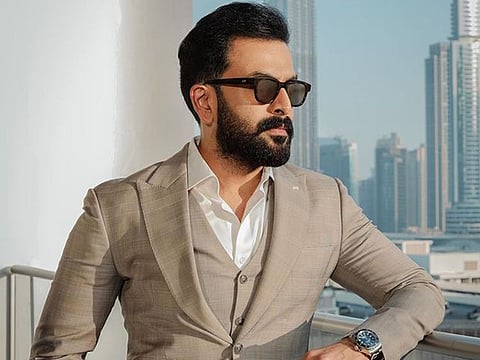Empuraan opinion: Why I think Prithviraj deserves praise and applause for not playing it safe
I wasn't a fan of the film, but can't ignore the director's courage to go against the tide

Let’s get one thing out of the way: Prithviraj and Mohanlal's Malayalam Eid blockbuster L2: Empuraan isn’t cinematic gold. It’s uneven in parts, a bit indulgent, and doesn’t always hit the emotional highs it aims for. But here’s what it does have — guts. Prithviraj showed unflinching courage of conviction and in today’s climate, that’s a rare commodity.
At a time when Bollywood is busy playing it safe — churning out nationalistic, chest-thumping, feel-good sagas that carefully stay within the lines — Prithviraj has done something radical. He’s made a film that risks discomfort. And he’s done it knowing full well what’s at stake — his reputation, his audience, his standing in the industry.
As Hindi cinema continues to mirror the mood of the majority, Empuraan chooses to challenge it — much like Kerala itself, a state that often stands apart in its politics and its arts. With a boring, but occasionally bold 'Empuraan', Prithviraj engages with political and communal fault lines with a directness that’s increasingly rare.
Yes, India's censorship authority CBFC cleared the film with only minor edits — just about 10 seconds trimmed. But once it hit theatres, the outrage began. Accusations of being anti-community or politically biased began flying thick and fast. Under pressure, the filmmakers agreed to 17 voluntary cuts — a reminder of how fragile the line is between artistic freedom and public sentiment today.
What stings more is the personal fallout. When Mallika Sukumaran — a respected actor and Prithviraj’s mother — stepped forward to defend her son on several television channels in India, it was clear this had become more than a professional storm. “They’re trying to make my son a scapegoat,” she said. And it’s hard not to agree with her.
This isn’t to say Empuraan is beyond criticism. It isn’t. But art doesn’t have to be flawless to matter. Sometimes, its greatest strength lies in the questions it dares to ask. And right now, in a film industry where silence often feels safer, Prithviraj’s decision to make Empuraan — sharp edges, discomfort and all — is a stand worth acknowledging. He didn’t have to. He had a lot to lose. But he did it anyway. And that alone deserves applause.
And that’s what makes Empuraan such a risky, fascinating move. Prithviraj isn’t a fringe filmmaker with low stakes — he’s a bankable star, a sought-after director, and the face of a commercially successful franchise.
By wading into politically charged territory, he risks alienating mass audiences, triggering regional backlash, upsetting power structures, and even jeopardising future OTT and theatrical deals.
In an industry where safe and sanitised cinema often ensures survival, Prithviraj’s decision to tell a story that rattles isn’t just bold — it’s career-defining or even career-destroying.
Here’s where context matters: Prithviraj, being a seasoned player, might have taken a calculated risk. He’s Malayalam cinema’s most brilliant strategist and businessman — someone who’s not just creative but commercially astute. The marketing blitzkrieg around Empuraan was intense and well-timed. A section of viewers claims this is all part of a shock marketing strategy — create outrage, amplify discourse, and boost ticket sales. But here’s where I don’t quite buy that theory. It's too simplistic and ignores nuance. Betting on outrage in today’s climate feels more like playing with fire — or worse, like nuking your own house just to get back at the neighbors. I don’t believe Prithviraj would risk his career, or worse, his family’s safety, for a gimmick. That’s a stretch.
I’ll be honest — I didn’t think Empuraan was a riveting film. In my review, I called out its all-style-zero-substance narrative. It’s not flawless cinema. But watching the way the politics around it are playing out has left a far worse taste.
The outrage, the performative apologies, the attacks against Prithviraj's producer-wife by branding her an "urban naxal" — it all feels depressingly familiar. And while I may have critiqued the film harshly, I find myself instinctively defending the filmmaker.
When silence is celebrated and risk-free narratives thrive, choosing to rattle the system — even clumsily — takes courage, not condemnation.
Whether this turns out to be a masterstroke or career suicide for Prithviraj, one thing’s clear: he had a spine when it counted. And that, frankly, is more than I can say for many others.
Sign up for the Daily Briefing
Get the latest news and updates straight to your inbox


